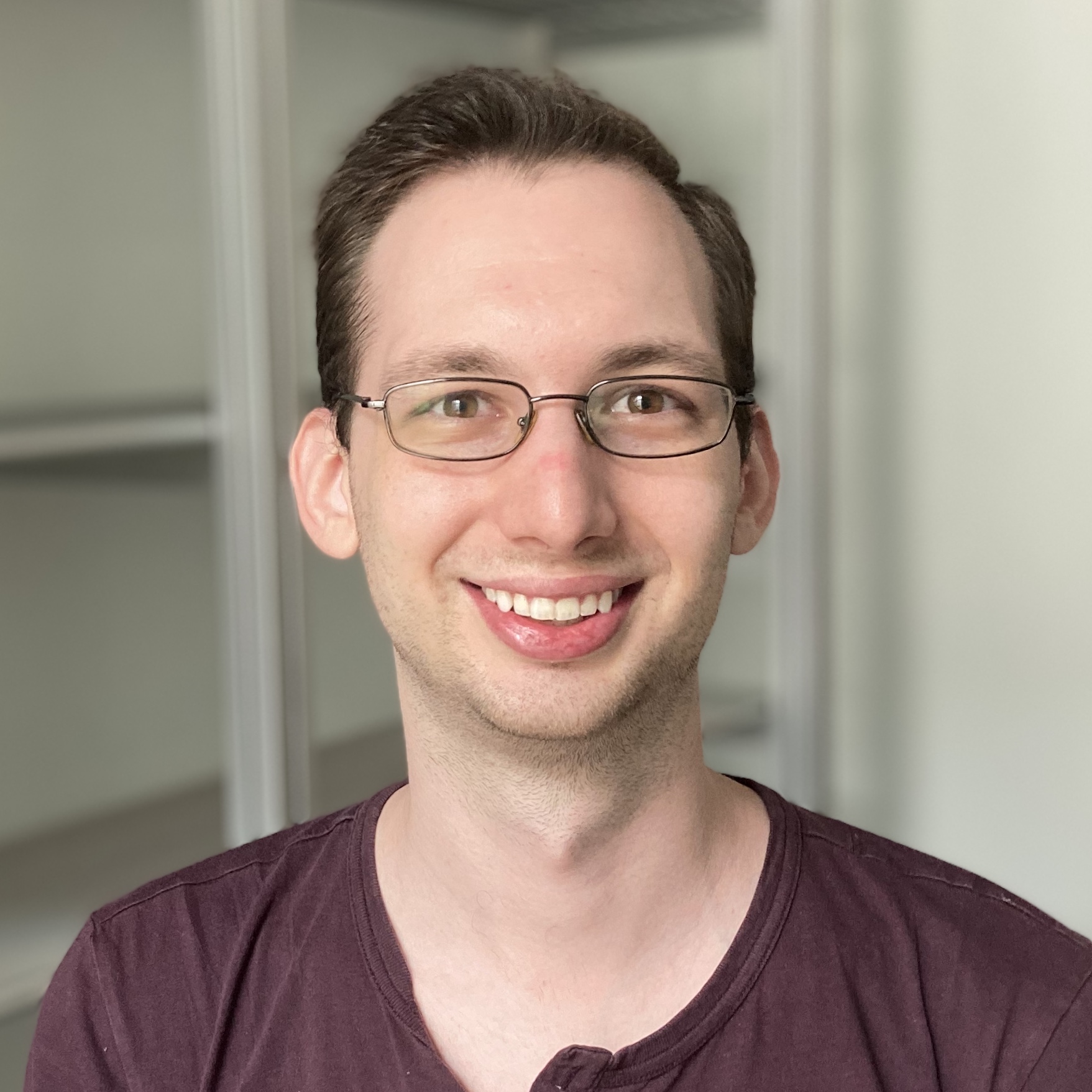“We started using spectrograms more often,” said Lamontagne of the F315 class. A spectrogram is a visual depiction of frequencies of sound over time, and F315 students could use software to convert their French language practice into spectrograms as part of their pronunciation assessment for the class. Luckily, Lamontagne’s teaching assistant, Arielle Roadman (MA ’21, French Linguistics and Linguistics) did have socially-distanced in-class meetings with students twice a week, so she could model and assess the students’ pronunciation in person, albeit with masks (hers was clear).
Due to traveling back and forth from Montreal to deal with the details of a long-term move, Lamontagne spent a total of 8 weeks of the Fall Semester, so about half the time, in quarantine. In addition to F315, he also taught Introduction to French Linguistics (F402). “My students were my primary social contact,” says the bilingual native of Ottawa.
Lamontagne was attracted to apply to the position in the Department of French and Italian due to good word of mouth, including from his dissertation co-director Heather Goad and a colleague at the Université de Québec à Montréal, Michael Dow (PhD ’14, French Linguistics). He visited campus in February 2020 to interview as a finalist, and he was impressed by the relationships between the academic programs related to linguistics: those housed in language-specific departments like FRIT as well as the different fields in Linguistics and Second Language Studies. Since he was using computational linguistic tools in his dissertation research, IUB’s strength in computational linguistics was especially important in leading him to accept the job offer that came a few weeks after his visit.
Lamontagne’s dissertation, which he successfully defended at McGill in September 2020, described three studies he undertook on phonological variation, or differences in sound produced among speakers of a language. The first study was of French speakers in Saguenay, Quebec, and how emphasis on certain words in phrases is affected by the sounds of words in the phrases. This was initially to be an in-depth study to comprise the whole of his dissertation, but due to the pandemic Lamontagne was unable to complete the in-person research required, so he shifted to an “article-based thesis” of three different studies.
In the second study, Lamontagne used a large database, or corpus, of Laurentian French (also known as Quebec French) and a computer program to investigate laxing, the process of a tense vowel becoming lax in everyday speech. Finally, in the third study Lamontagne used a Spanish language corpus developed by his dissertation co-chair Francisco Torreira to explore the deletion of vowel sounds between words when the first word ends in a vowel and the second word starts with a vowel.
After successfully completing the herculean intellectual task of defending his dissertation while moving to a new country and teaching two new courses online, Lamontagne was able to settle in a bit more to the scholarly community at IUB during the Spring 2021 semester. Two additional new courses were on his schedule, as well as diving into a phonetics reading group, where he connected with colleagues and advanced graduate students who had similar interests. He taught his first graduate course, Introduction to French Morphology, which he found very rewarding. A few of his students are continuing work on the presentations they gave in his course and plan to present their research at upcoming conferences.
As to his own research, Lamontagne is both continuing what he began as a doctoral student in Quebec and branching out into new fields of inquiry. He hopes to be able to conduct the in-person research in Saguenay to complete the bigger research project he initially planned for his PhD dissertation before the pandemic got in the way. In his ongoing study of laxing in Laurentian French, he intends to next look at individual speakers and whether they develop rules for when a vowel sound is changed. Meanwhile, with the assistance of two native Mandarin speakers from the Department of Linguistics, he is exploring tone changes in Mandarin that are dependent on subsequent tones in the phrase or sentence.
Twitter has also been a topic in Lamontagne’s research recently. He has partnered with Gretchen McCulloch to analyze repetition of letters in Tweets in Laurentian French and the French or both northern and southern France. For example, “tropppppp loooongueuuhhhh” instead of "trop longue."
When asked how he liked Bloomington so far, it was understandably difficult for Lamontagne to give an answer, since so much of his time here has been under pandemic circumstances. He enjoys cooking and cocktails, so he is looking forward to more socializing when he returns from a trip home to Canada this summer, and he is a Dungeons & Dragons gamer, which activity he continued online with his family and friends during the COVID shut-downs.
The Department hopes to reinstate its annual fall welcome party in early September so that we can give Lamontagne and our new graduate students from Fall 2020 and Fall 2021 a hearty, in-person welcome soon.

 The College of Arts
The College of Arts